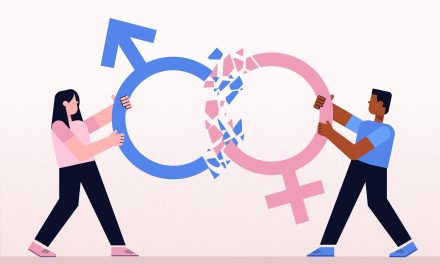You may not even know you have fibroids as they could develop silently
Yet another health condition that tends to fly under the radar until it’s too painful to ignore; have you heard of fibroids? Many women are unaware of the condition and may not even know they have them.
Quick Read:
- Fibroids can be as tiny as a grape or as sizeable as a lemon.
- Unfortunately, many women don’t realise they have fibroids until they become quite painful.
What are fibroids?
Fibroids are generally harmless growths of muscle tissue that can develop on or around the uterus. You may have one or several fibroids. The reasons they form are complicated and could be due to a range of factors.
One major factor is high levels of certain hormones, like oestrogen and progesterone. Being overweight can also increase your risk, as extra body fat can raise oestrogen levels, encouraging fibroids to grow. This makes your diet important: animal products like meat, ham, wheat, spicy and fried foods, and too much alcohol are not recommended if you have fibroids.
Common symptoms of fibroids
The most common symptoms are usually painful cramps, swelling, abdominal pain, frequent urination, and heavy bleeding. Some women suffer from lower back pain as well as pelvic pain.
The problem is that because these signs are also easily confused with your period and PMSing, fibroids can be easy to miss. In fact, many women, for years, simply believe they have difficult menstrual cycles because they bleed for longer than would be normal. As fibroids grow, it can lead to painful sexual intercourse, infertility, and miscarriage.
Do fibroids affect all women?
Unfortunately, fibroids affect many women. In a lot of cases, the fibroids are generally small, painless, and don’t affect your quality of life in any way. On the other hand, it’s concerning that black women seem to be at a higher risk of fibroids.
Uterine fibroids (UFs), also known as uterine leiomyoma, are the most common benign tumours found in reproductive-aged women of all races and may affect up to 70% of all women by menopause. The highest burden of this condition affects black women, occurring at rates 3–4 times greater in them as compared to their counterparts of other races.
– National Library of Medicine (US)

Fibroids and menopause
For some women, they may notice that fibroids can shrink after menopause. This is the period when your hormone levels drop which cause the fibroids to often shrink or stop growing. However, this doesn’t happen for everyone, and some women may continue to experience symptoms even after menopause.
Frustratingly, the reverse may also be true. Some women could develop fibroids in their late 40s-50s. There may be some genetic link here, if your mother or grandmother had fibroids, you may be at risk, too.
While many women with fibroids can have healthy pregnancies, fibroids can sometimes cause complications like miscarriage, preterm labour, or problems with the baby’s position. However, most women with fibroids can still conceive and carry a pregnancy to term.
Help at hand
Hopefully, you’re staying up to date with your regular doctor visits and screening tests. And if not, it’s a good idea to make these visits priorities. In many cases, fibroids don’t call for medical help. If they’re small and not causing pain or impacting your health, doctors may simply monitor them rather than recommend surgery or other treatment.
If fibroids do become severe, they can lead to infertility or miscarriage. As always, the earlier you receive treatment, the better your chances of a swift recovery.
- Look for noticeable signs like weight gain, a swollen or bloated tummy, pelvic pain, and painful sex.
- Take proactive steps to prevent the growth and spread of fibroids. Regular exercise may help keep oestrogen levels in check. Eat more vegetables and fewer meat products. Also, try to cut back on sugar and processed foods. Add more Vitamin D-rich foods to your diet, which may help to shrink the fibroids.
- Always visit a doctor, go to the clinic, or a gynaecologist if you’re experiencing the symptoms we mentioned. You may think it’s just heavy bleeding from your period, but it could be fibroids, which a gynaecologist may be able to diagnose after a routine visit.
- Some women have just a few of the symptoms, such as no cramps but heavy bleeding. Do your best to monitor your health and know when something feels abnormal.
- There is treatment for fibroids if necessary, so please take action and get checked out.
Images: Pixabay



















